Imagery and sounds create the atmosphere we love, but the dialogue can be just as chilling — and a few well chosen words can create horror history.
A dark and stormy night. Heavy fog rolling across a graveyard illuminated by a full moon. The sound of stairs creaking or a distant wolf howl. Film is a visual medium, and for most of its existence an audio one as well. Horror films have always relied heavily on striking visuals and hair raising sounds to create a spooky and unsettling atmosphere to keep viewers on the edge of their seats.
From seeing Nosferatu rise from his coffin to hearing Regan’s ragged breathing in The Exorcist, visuals and sounds have been inducing nightmares for decades. But sometimes dialogue can be just as chilling as any scary sight or mysterious sound.
Below is a list of spoken words that immediately strike fear into the hearts of viewers or create instant unease. Because while seeing a ghost or hearing a bump in the night can be scary, nothing is as frightening as hearing the fear, or the evil, in another person’s voice.
1.
There are several, extremely unsettling things being communicated in this statement. First is the use of the word ‘souvenir’, which implies a memento as a means to remember an occasion. The fact that he took a woman’s head is sickening enough. But he did more than simply take her head here. He took it as a token, a souvenir to remember what it was he did to her before he took her head.
And if he’s willing to remove a woman’s head from her body, (a severed head he still refers to as “pretty” by the way), imagine what he did to the woman before the decapitation. This dialogue says just as much as a statement as what it implies in the silence that follows.
2.
Writer M. Night Shyamalan could have said, “I see ghosts,” instead of “dead people.” But “dead people” has much more of a unknown factor and gut-punch here. The boy who sees these dead people has seen them long enough to know they aren’t ghosts. He knows they’re in between two worlds. And for a young boy to know that death can lead to existing in this trapped space must create an empty and terrifying existence.
He also lives with the fact that he is never alone. But unlike ghosts, he constantly sees these dead intruders coming in and out of his life. Ghosts are random, ghosts are rare. But for the boy who sees dead people, that’s a constant and frightening concept. All of these stakes and character development came from 4 expertly assembled words.
3.
I love this concept in Candyman. The fact that mere words can conjure up a terrifying being to appear behind you is scary on 2 levels: it’s so easy to do and so tempting to disprove. But if you’re wrong, you’re dead. The “breathing down your neck” part invokes fear in 2 ways. First, if the Candyman is breathing down your neck, it implies that he is bigger than you, a threat of imposing size that you most likely won’t stand a chance against. Second, if he’s standing behind you breathing down your neck, he’s ready for you. Turning around or not, you’re dead.
The scariest part of this dialogue is the discomfort it creates in not knowing if it’s true or not, and looking yourself in the eye in the mirror to find out if you’re going to live or die in finding out. Candyman, Candyman, Candyman, Candyman…
4.
We’ve all been reading a book or watching a movie, fighting to keep our eyes open when…DARK, we involuntarily doze off. This is why this request not to fall asleep is so frightening, because it’s inevitable. The body will shut down and fall asleep at some point, and we all know what happens when sleep is coming. 1, 2 Freddy’s coming for you…
This dialogue creates fear because you know you will lose, and it’s only a matter of time before you encounter the sleep demon with the razors on his gloves. It’s also frightening because sleep feels so comforting, and it’s enticing to merely rest your eyes for a moment. That’s the moment the nursery rhyme usually finishes. 9, 10 never sleep again.
5.
Sex and violence are 2 urges on opposite ends of the spectrum, separated in some cases only by a fine line. On their own, sex and violence can be powerful acts. But when confounded is when an internal metamorphoses occurs and a new, un-human urge is formed. This fusion and change leads to a new understanding, a new way of life and the birth of an animalistic desire.
While the words ‘sex’ and ‘fucking’ are attention grabbing, the use of the word ‘ache’ is the ultimate foundation of this line. Using ‘ache’ instead of ‘urge’ hints at something much deeper than simply a fleeting feeling to do something. Ache signals a calling, a deeply rooted craving that is growing inside and taking over. Ache is a loss of control.
This line is brilliant because everyone understands the urge for sex, but coupling that with wanting to tear things to pieces suddenly makes that urge feel uncomfortable. And going back to the beginning with the use of the word ‘ache’ takes this line from being uncomfortable directly to the unknown and downright scary.
6.
This line immediately makes you wonder: how much bloodletting does it take to get blood all over someone? What is this person going to do to the victim to create all of this blood? This dialogue triggers the imagination to go to horrible and unthinkable places and brings forth agonizing questions. Is the victim dead or still alive while the killer is doing this to their body? Perhaps the victim lay dying slowly, gripped with fear and torturous pain while they watch the killer rub their blood all over them.
The image it conjures up of the killer rubbing blood all over them is utterly stomach churning and scary. Is the killer smiling while doing this? Is the killer keeping eye contact with the victim while he smears their blood all over his body? Is the killer naked? The possible scenarios and imagery that are suggested here is what makes this dialogue stab like a knife.
7.
This is a wonderfully constructed line that largely speaks for itself. But there are 3 words that make this dialogue so special. The first is the word ‘centuries’. This suggests that not even death will save you from the pain you will experience. Where you’re going is beyond time, but you’re promised to feel every minute of this timeless hell. The word ‘discover’ brings to mind endless attempts to elicit pain. This makes a person wish and even beg for death which, as already stated, isn’t coming for centuries. And finally the word ‘whimper’. Whimpering is slow agony, pure torture with no end in sight. The torment drawing out like an impossibly slow knife splitting open skin.
This dialogue suggests that death would be more pleasurable than life and for it to do that and completely flip natural human instinct is truly effective and horrifying. The person, or thing, making this comment is an agent of pure wickedness. What they have planned to do has no connection to rational thinking or understanding. The thought of excruciating, unending pain in a timeless existence is scary beyond recognition.
8.
I can’t think of anything scarier than random acts of violence, and this simple exchange of dialogue in 2008’s The Strangers is simply bone chilling. As humans we are curious creatures by nature, always wondering the ‘why’ behind things and events that take place. Looking for a motive is a way of rationalizing things we can’t quite comprehend and, in some cases, helps people cope.
But this dialogue doesn’t offer any rationalization. In fact, the response makes it even more terrifying. It indicates a sense of powerlessness, wrong place, wrong time. There’s absolutely nothing that could have prevented this: you were there, so it happened.
The use of the word ‘home’ is also key to this dialogue being as scary as it is. When people think of home they think of a safe place, a personal space where one can relax and enjoy personal time or time with family or friends. So with the response being “because you were home,” this notion of safety gets flipped on its head. Suddenly home becomes a dangerous place, and when that happens nothing, nowhere feels safe.
9.
This line of dialogue is actually what prompted the writing of this article. I recently re-watched The Blair Witch Project and was floored when I heard this line during the famous camera light up the snot dripping nose, “I’m so scared,” scene. I fell in love with this line. When something scary is happening around you in the dark, two reactions tend to happen: you close your eyes as a means to hide, or you desperately dart your eyes around to see what’s happening.
If someone is scared to close their eyes and scared to open them, they are simply scared to exist in that moment. You can’t do both, it’s either one or the other and for someone to express they are that frozen with fear conjures up what I imagine for most to be an unfathomable, all consuming inner and outer terror. This line is just breathtaking, both in its smartly simple syntax and its ability to instantly stir up fear in whoever hears it.
10.
I could have gone with the “I ate his liver” with fava beans line here because cannibalism is pretty scary. But it’s this line, “the screaming of the lambs,” that always gripped me and made me afraid. Foremost, it’s just a gorgeously written sentence. But it offers so much to be afraid of.
Waking up in the dark is enough to elicit an uneasy feeling; waking from sleep is disorienting and the dark can be mysterious and unsettling. But the second part of the sentence is really what grabs whoever hears it while at the same time further strengthens the first part. Lambs are largely docile and peaceful creatures who are easily spooked. But when lambs start screaming, that’s when you know there is a wolf.
To wake up disoriented in blinding darkness to the screaming of lambs and know there is a wolf hiding in that darkness is vulnerable horror at its finest. And that line of dialogue is perfectly written to convey this moment of gripping fear.


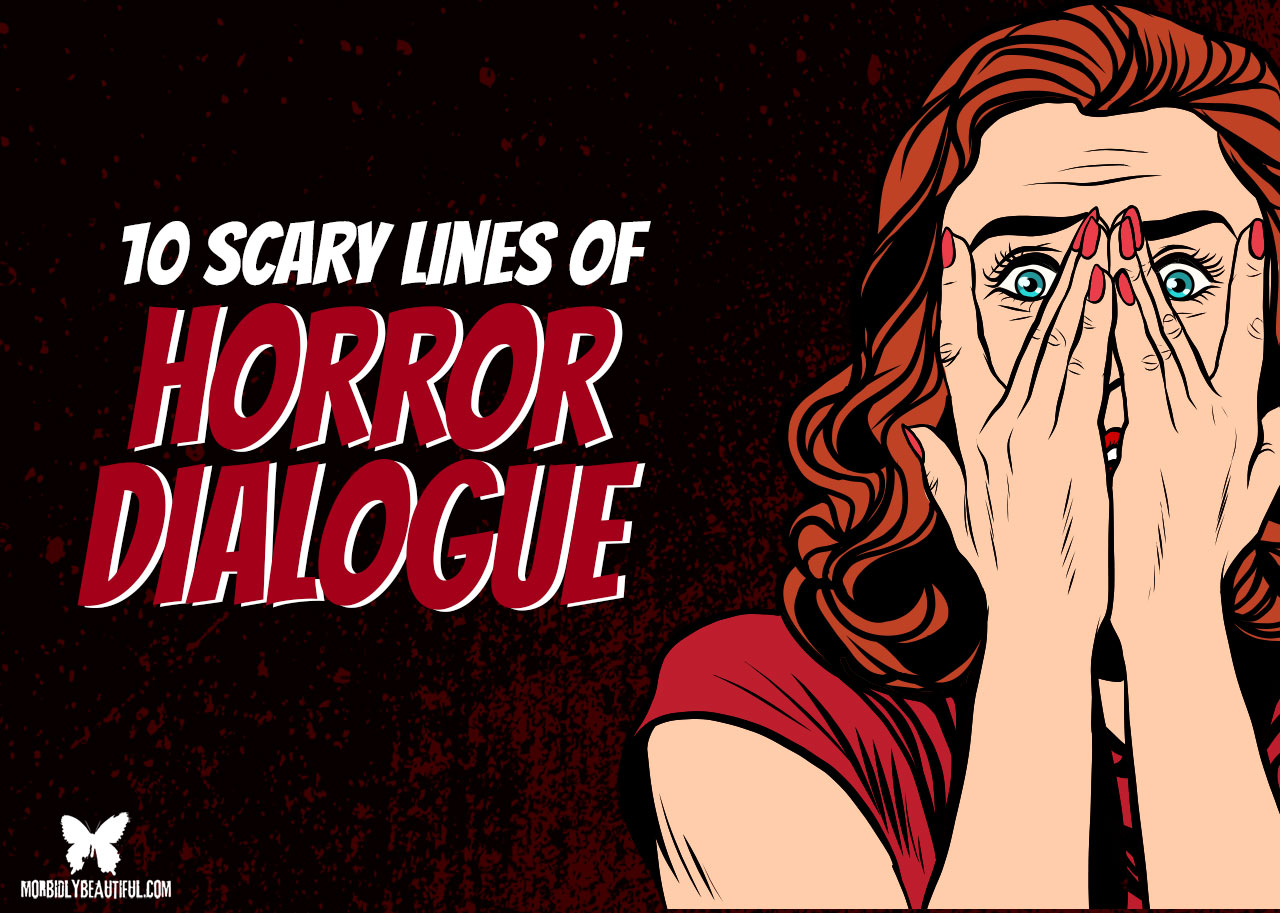



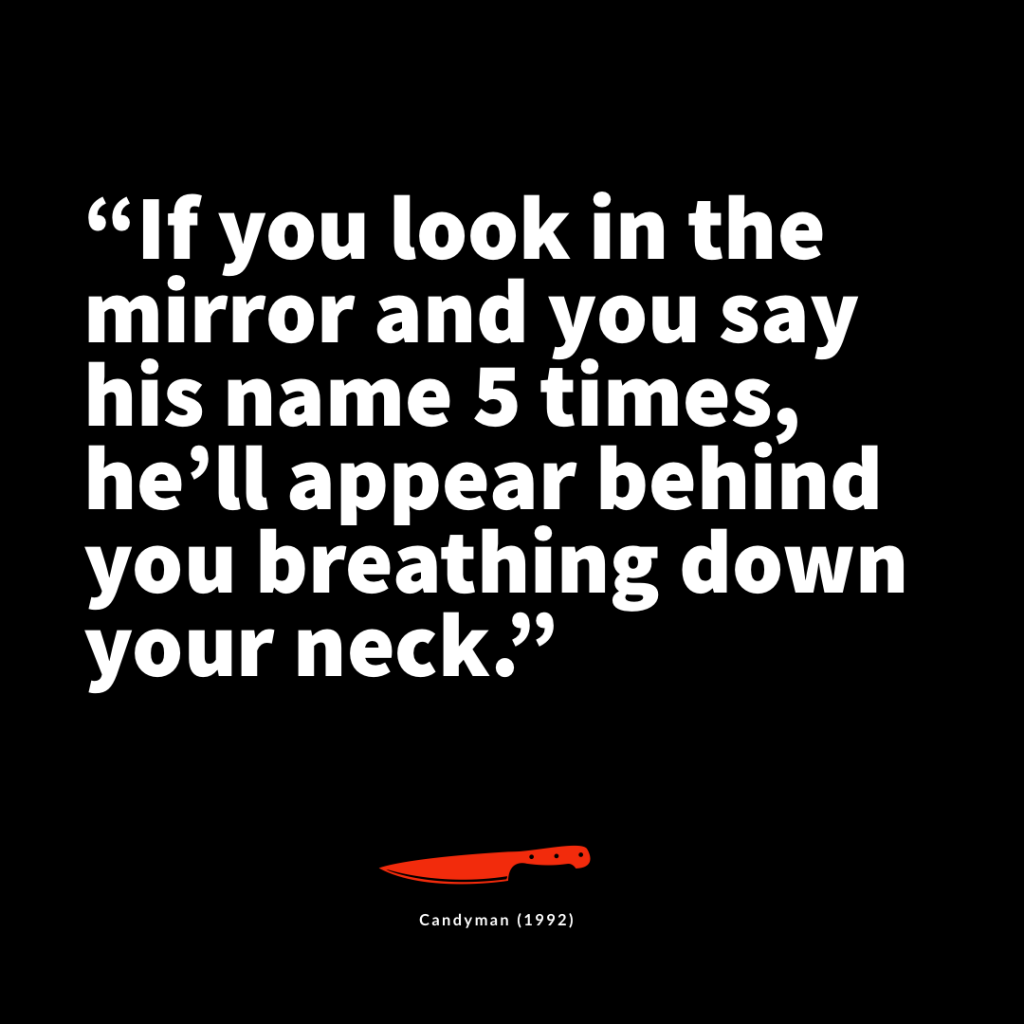
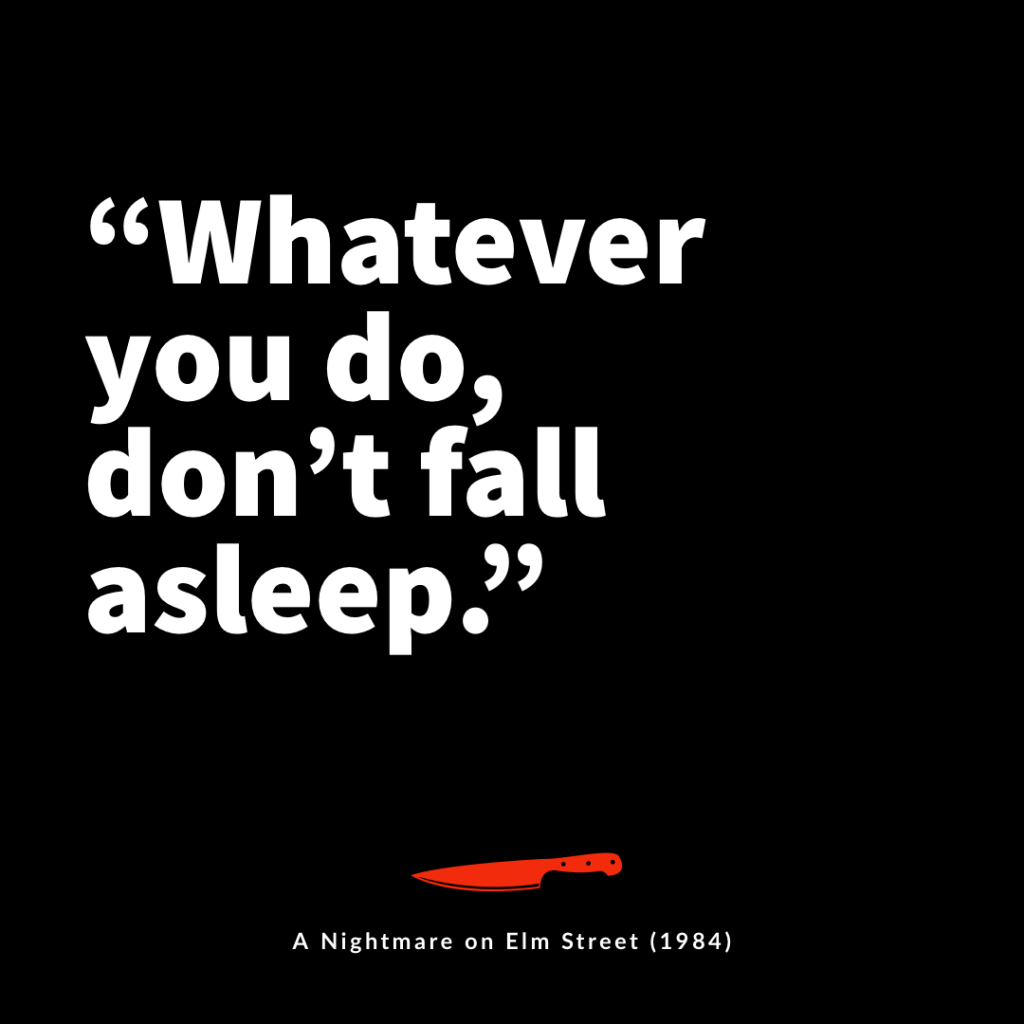

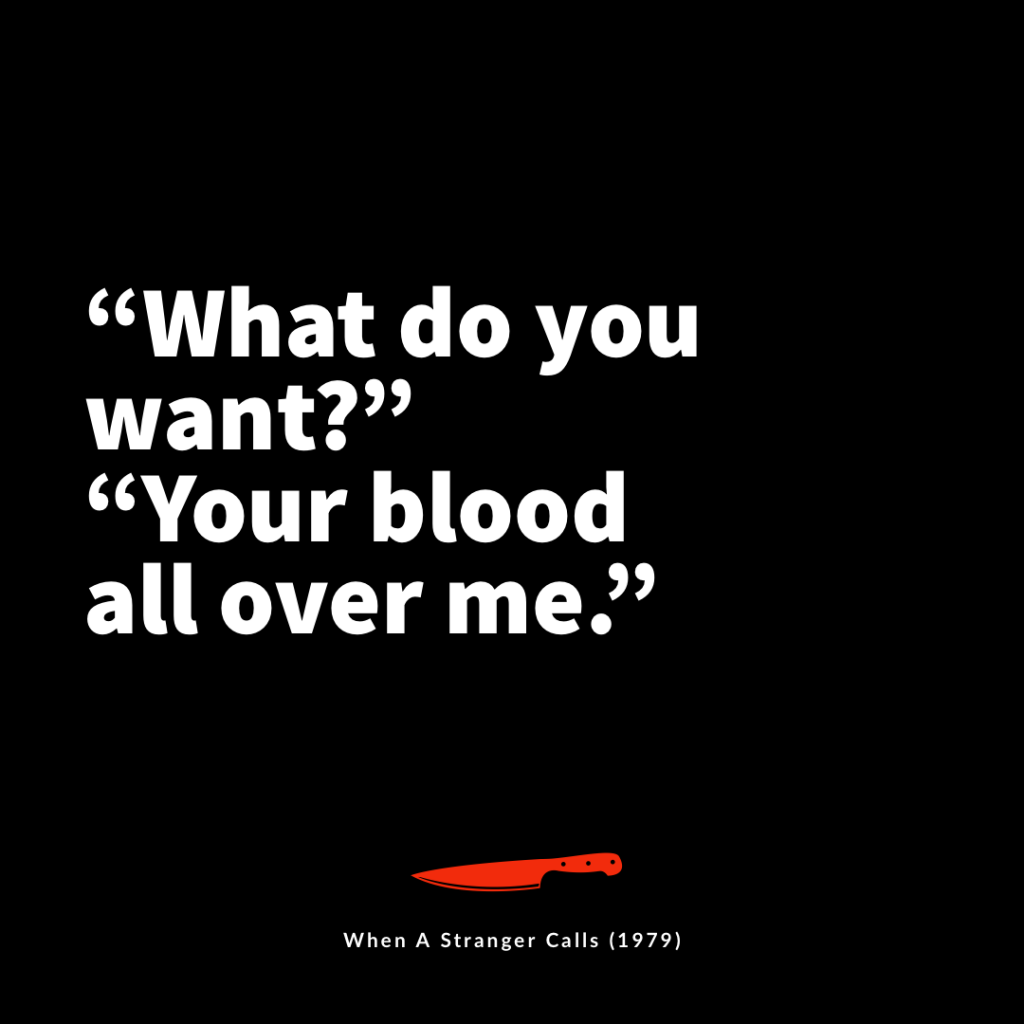

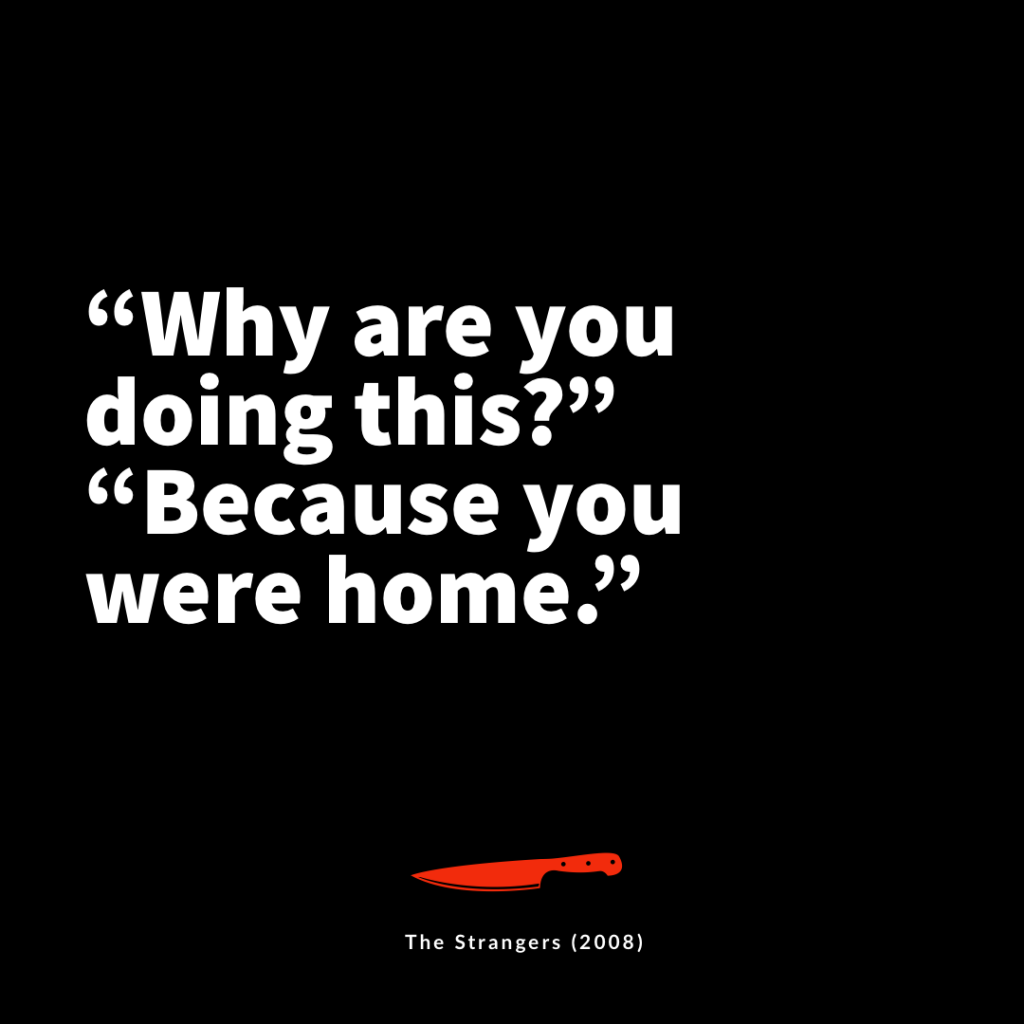
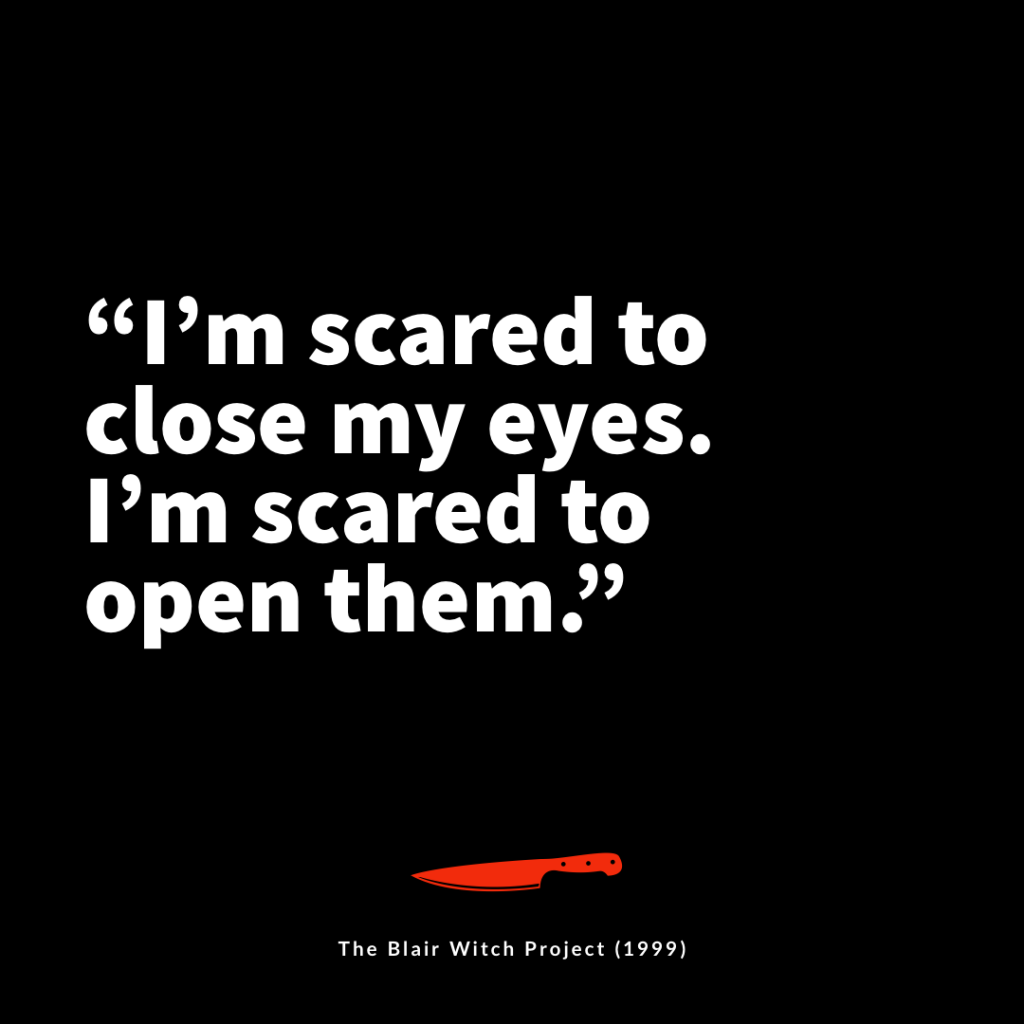
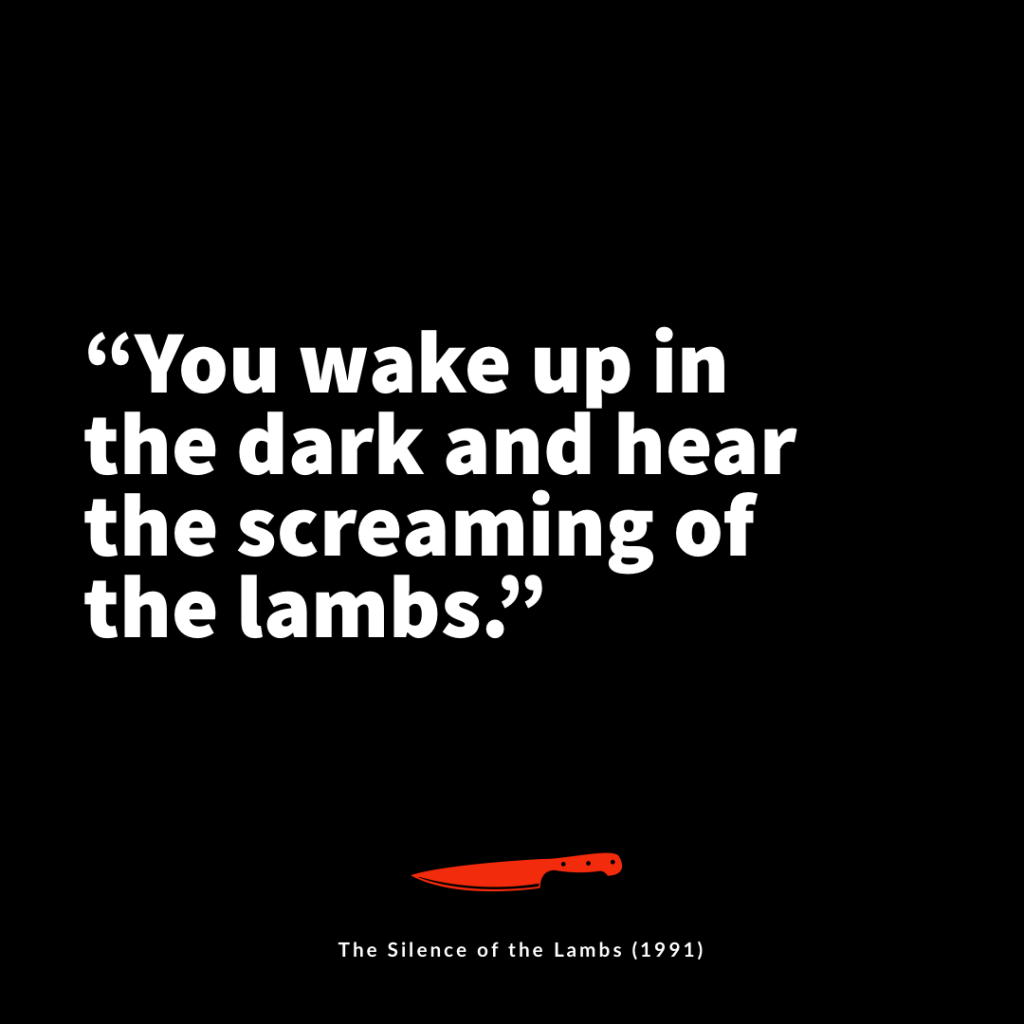









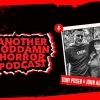

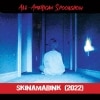
Follow Us!